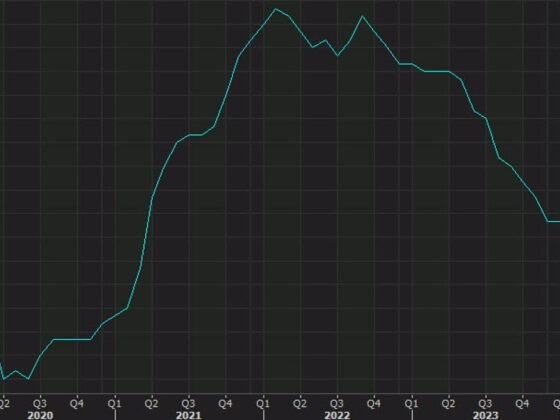- Pound Sterling struggles to maintain gains despite positive S&P Global Services PMI data.
- Concerns loom over the UK economy facing a potential technical recession.
- Hints from BoE’s Pill suggest discussions around initiating interest rate cuts.
On Tuesday, Pound Sterling faces challenges in sustaining its recovery during the European session as short-term prospects for risk-oriented assets remain uncertain. With investors seeing the Federal Reserve (Fed) adopting a cautious approach towards interest rate adjustments, safe-haven assets are gaining traction. The Fed’s cautious stance stems from receding concerns of a US recession, supported by robust labor and retail demand data, giving policymakers ample time to deliberate on rate decisions.
Despite upbeat UK S&P Global/CIPS Services PMI data for January, with a reading of 54.3 surpassing expectations, GBP/USD struggles to gain momentum. The report attributes the uptick in Services PMI to strong order inflows, robust hiring trends over the past six months, and mounting expectations of rate cuts by the Bank of England (BoE).
Daily Market Summary: Pound Sterling Faces Uncertainty as US Dollar Strengthens
- Pound Sterling grapples with maintaining support around 1.2500, established during the late Asian trading session on Tuesday, amid prevailing market caution.
- Market sentiment leans towards a bearish outlook for risk-associated assets, with hopes of aggressive Fed rate cuts diminishing due to robust US economic growth.
- Investors, as indicated by the CME Fedwatch tool, anticipate a potential 25 basis points rate cut in May, a shift from previous expectations of March.
- The US economy shows resilience with improving order books in the manufacturing and IT sectors, buoyant labor market conditions, and strong consumer spending.
- Minneapolis Federal Reserve Bank President Neel Kashkari’s remarks on Monday underscore the reduced risks to economic growth, allowing the central bank more time to deliberate on rate adjustments.
- Pound Sterling faces the added risk of a potential technical recession, prompting BoE policymakers to consider a dovish stance on interest rates.
- A technical recession occurs when an economy contracts for two consecutive quarters, with the UK economy experiencing a 0.1% contraction in the third quarter of 2023.
- BoE Chief Economist Huw Pill’s recent remarks signal a shift in stance from considering interest rate cuts “if” necessary to “when” they may occur.
- BoE Governor Andrew Bailey, in the latest monetary policy statement, maintains a watchful stance on inflation while keeping borrowing costs under review.
- With a light economic calendar, market attention turns to BoE member Catherine Mann’s upcoming speech on Thursday. Mann, one of two of nine Monetary Policy Committee (MPC) members, voted for a 25 basis points rate hike.











